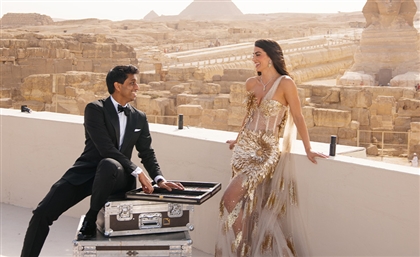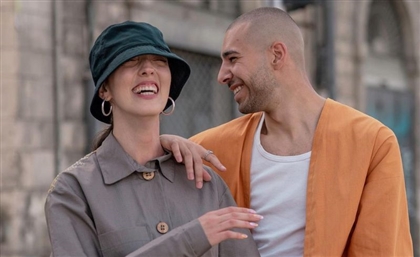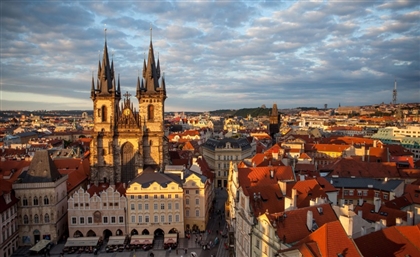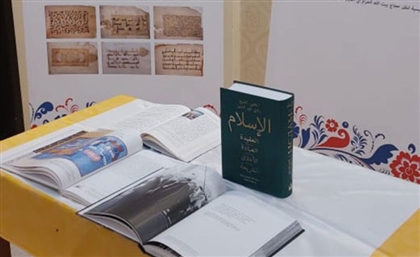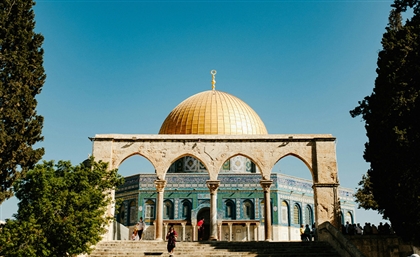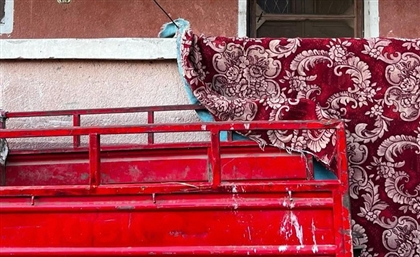Eilaf: The Sudanese Brand Weaving East African Art Into Bags
This label has a supply chain network in the depths of Sudan, Uganda, Chad and Rwanda, supporting artisans whose hands have bled time and time again in curating raw art and fashion.
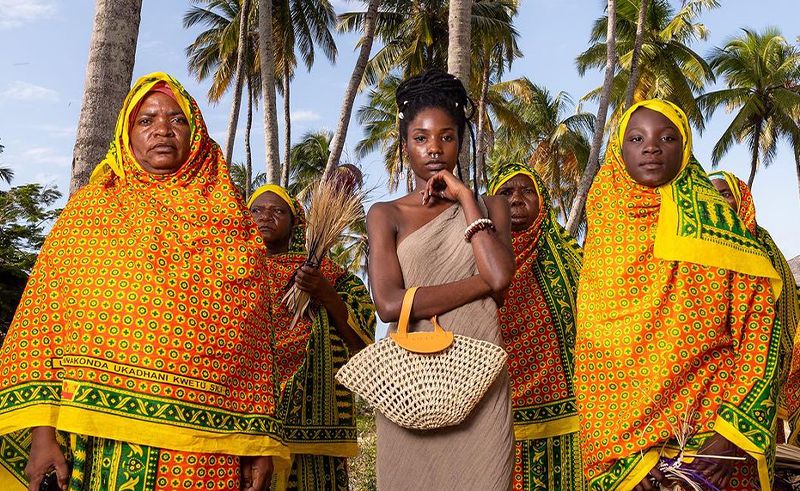
Born out of Sudan, swimming its way up against the Nile and traversing the Nubian desert, Eilaf is weaving its rich culture into the world of bags. Blending the vibrant artistry of East Africa with the functionality of contemporary design, this label offers portable pieces of Sudanese history. Each stitch tells a story, each geometric pattern a tale of ancient traditions, making every bag a window into East African culture.
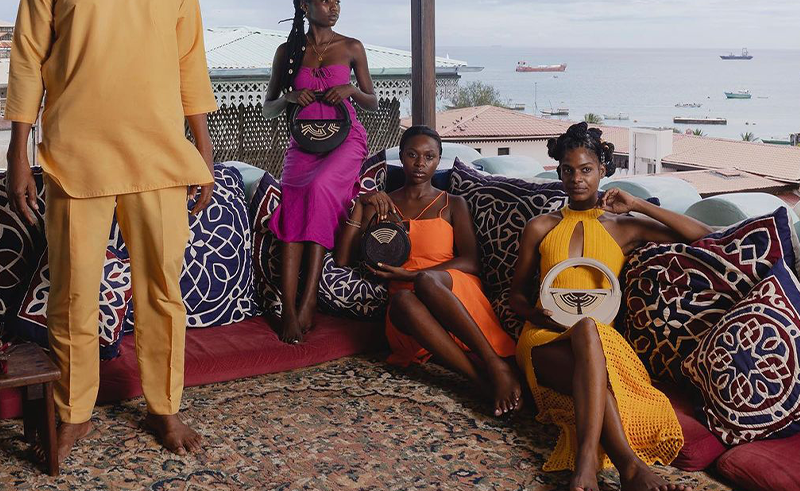 Eilaf Osman - the founder of Eilaf - got her start in handbag design during an elementary school fair, where she wove and sold little denim-skirt-like bags. Bedazzled with rhinestones and patches, Osman’s signature touch in design was always there. This wasn’t just a business venture; this was Osman’s start in building a community, and being able to talk to people after school-hopping and moving around. “For the first time, I saw the power of design and art, how it can make someone go from being invisible to having something to say,” Osman tells SceneStyled.
Eilaf Osman - the founder of Eilaf - got her start in handbag design during an elementary school fair, where she wove and sold little denim-skirt-like bags. Bedazzled with rhinestones and patches, Osman’s signature touch in design was always there. This wasn’t just a business venture; this was Osman’s start in building a community, and being able to talk to people after school-hopping and moving around. “For the first time, I saw the power of design and art, how it can make someone go from being invisible to having something to say,” Osman tells SceneStyled.
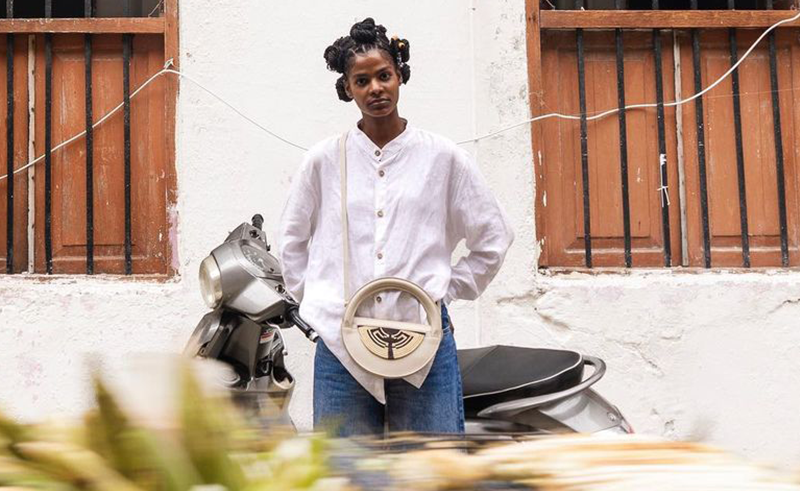 As she grew up and went off to Stanford University where she ran their arts and culture magazine, she started to enjoy something besides creativity - people management. To her, the platform was about bringing artists together and leveraging opportunities. She then proceeded to uncover another part of herself through her next venture interning for Emilio Pucci in Florence, Italy.
As she grew up and went off to Stanford University where she ran their arts and culture magazine, she started to enjoy something besides creativity - people management. To her, the platform was about bringing artists together and leveraging opportunities. She then proceeded to uncover another part of herself through her next venture interning for Emilio Pucci in Florence, Italy.
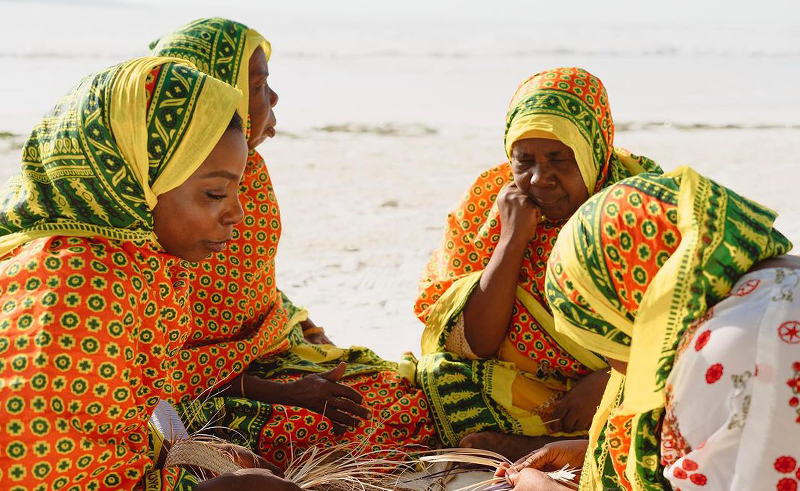 As Osman remembered the days of her internship, she started talking about how she dove into archival research to see how African fashion inspired Pucci’s heritage house, which sparked her idea for her brand. She was inspired by the key words that kept pressing in her head: “African, heritage, luxury.” Whilst travelling back and forth, Osman would bring back cool pieces from Sudan to America and the reactions were always overwhelmingly positive. Everyone noticed the beauty of the pieces and yearned for one for their own.
As Osman remembered the days of her internship, she started talking about how she dove into archival research to see how African fashion inspired Pucci’s heritage house, which sparked her idea for her brand. She was inspired by the key words that kept pressing in her head: “African, heritage, luxury.” Whilst travelling back and forth, Osman would bring back cool pieces from Sudan to America and the reactions were always overwhelmingly positive. Everyone noticed the beauty of the pieces and yearned for one for their own.
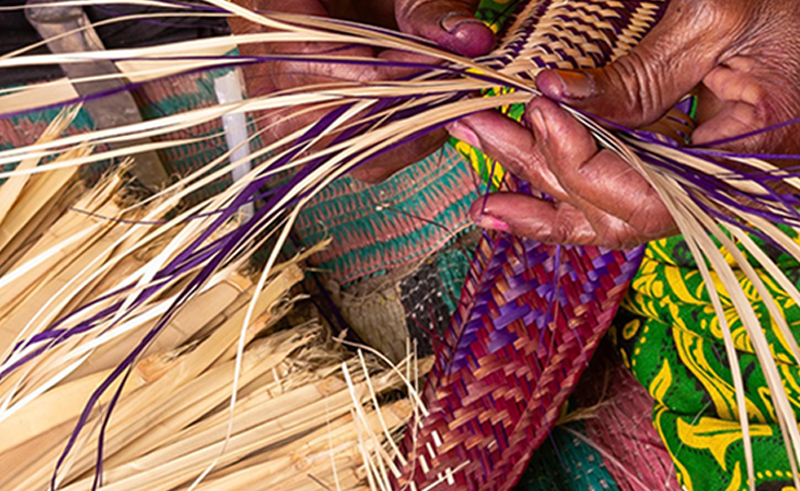 “I wanted to bring the souk experience to people,” Osman says. She dreamed of forging a space for marginalised communities without a platform or a voice and creating a conversation around identity. “African heritage and art is often devalued, compared to how European craftsmanship adds value to an item. I aimed to construct a space for heritage preservation and to value East African identity through art.”
“I wanted to bring the souk experience to people,” Osman says. She dreamed of forging a space for marginalised communities without a platform or a voice and creating a conversation around identity. “African heritage and art is often devalued, compared to how European craftsmanship adds value to an item. I aimed to construct a space for heritage preservation and to value East African identity through art.”
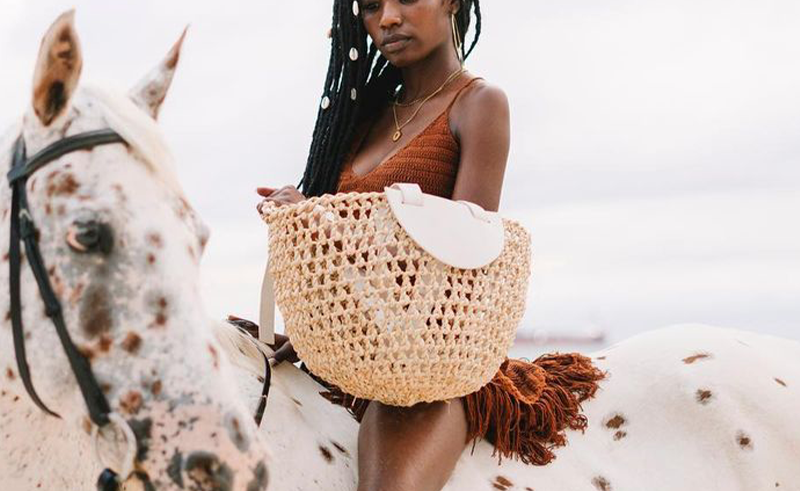 Through meeting several underground artists who defied rules before the revolution, Osman saw heritage in a different, more rebellious light. “Sudanese art is a way of building identity in a country that has over 200 tribes, in a country that’s so fragmented,” Osman says. “Art is a peace-building tool.”
Through meeting several underground artists who defied rules before the revolution, Osman saw heritage in a different, more rebellious light. “Sudanese art is a way of building identity in a country that has over 200 tribes, in a country that’s so fragmented,” Osman says. “Art is a peace-building tool.”
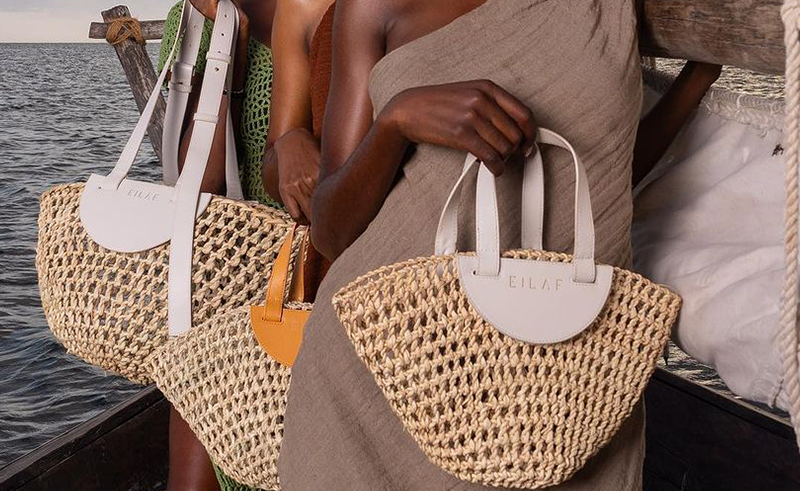 Woven in Africa and made in Spain, the brand’s main focus has remained the same since its foundation: to support and bring to light the quality craftsmanship of East African artisans. Eilaf supports local communities in Sudan, Chad, Uganda and Rwanda, solidifying and prioritising a scalable supply chain.
Woven in Africa and made in Spain, the brand’s main focus has remained the same since its foundation: to support and bring to light the quality craftsmanship of East African artisans. Eilaf supports local communities in Sudan, Chad, Uganda and Rwanda, solidifying and prioritising a scalable supply chain.
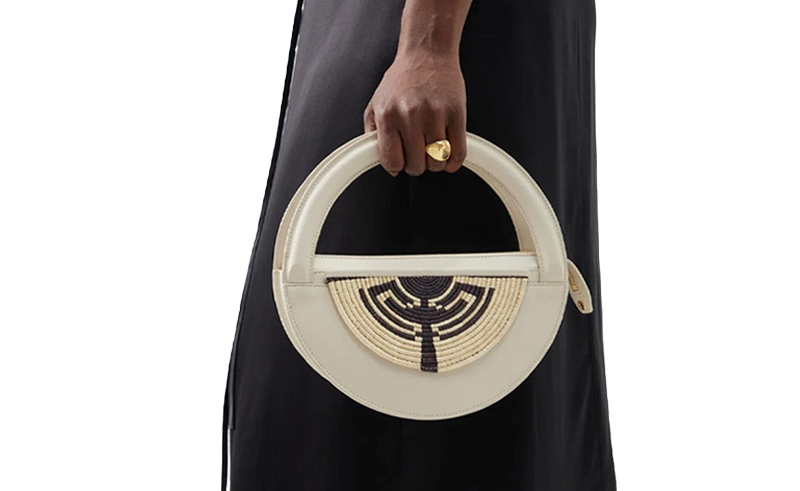 All of the brand’s baskets are naturally dyed by the flowers from one of its community gardens in Uganda. That took a year and a half; a slow-burn process that exhausted time and resources, but at the end of the day, Osman can stand tall and say that her brand really is sustainable. The Medani and Rwenzori Bags are woven by artisans using the traditional coil-stitch technique, originating from Uganda and Rwanda, with coil-stitch weavers residing in the Rwenzori Mountains.
All of the brand’s baskets are naturally dyed by the flowers from one of its community gardens in Uganda. That took a year and a half; a slow-burn process that exhausted time and resources, but at the end of the day, Osman can stand tall and say that her brand really is sustainable. The Medani and Rwenzori Bags are woven by artisans using the traditional coil-stitch technique, originating from Uganda and Rwanda, with coil-stitch weavers residing in the Rwenzori Mountains.
As for the Dom bags, they are handcrafted in Sudan and Chad, utilising the indigenous doum palm leaf. The process involves meticulously slicing the palm leaf into strips, similar to straw, and then wrapping them with raffia fibres. This skill is proudly passed down generations of only women, forming a dedicated community of weavers, which the brand supports by resettling them in Chad.
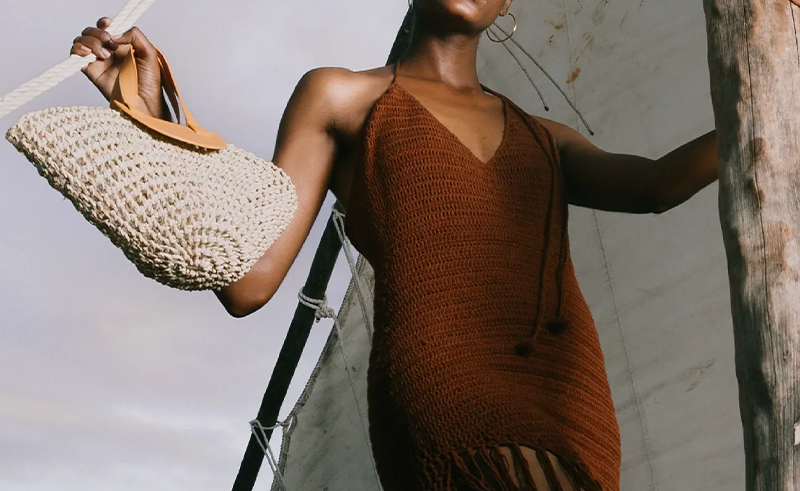 From crocheting with her grandma and stitching Sudanese sarees, to sitting in Eilaf’s community circles where the tribal women craft with their bare hands, Osman conducts the orchestra of Eilaf in such a way so her pieces hold up for good. “I want my customers to have a piece that they cherish and can pass down to their kids.” For Osman, true luxury lies in embracing individuality through pieces that are utterly unique and niche, as opposed to the homogeneity of mass-produced items.
From crocheting with her grandma and stitching Sudanese sarees, to sitting in Eilaf’s community circles where the tribal women craft with their bare hands, Osman conducts the orchestra of Eilaf in such a way so her pieces hold up for good. “I want my customers to have a piece that they cherish and can pass down to their kids.” For Osman, true luxury lies in embracing individuality through pieces that are utterly unique and niche, as opposed to the homogeneity of mass-produced items.




